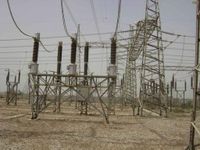The Egyptian Council of Ministers took a significant step towards enhancing the country’s energy strategy during its meeting on April 9, 2025, approving a cooperation agreement with the Emirati company K&K. This agreement aims to finalize feasibility studies for an ambitious project to export renewable energy from Egypt to Italy via a submarine cable.
This decision aligns with Egypt's broader energy strategy, which focuses on maximizing the generation, utilization, and export of clean electrical energy through various interconnection projects. The Egyptian Electricity Transmission Company (EETC) will spearhead this initiative, bearing the costs associated with the development and strengthening of the country's electricity network.
According to the official statement from the Egyptian Cabinet, the agreement encompasses essential technical studies, project components, and the financial responsibilities of both parties involved. This collaboration not only reflects Egypt's commitment to renewable energy but also positions the nation as a key player in the international energy market.
In addition to the submarine cable project, the Council of Ministers also approved the allocation of 2,500 acres in the Western Sahara of Al-Minya Governorate for a period of 25 years. This land will be utilized for a project aimed at cultivating timber trees, leveraging treated sanitary drainage water from a local treatment plant. This initiative is part of a broader effort to enhance sustainable development in Upper Egypt, benefiting small farmers and improving the state's asset utilization.
The decision to reclaim this land for agricultural purposes underscores the government's commitment to sustainable development and environmental management. The integration of treated wastewater into agricultural practices demonstrates innovative approaches to resource management in arid regions.
During the same meeting, the Council announced a total of 14 decisions across various sectors, emphasizing its proactive approach to governance and development. These decisions reflect the government's efforts to address pressing economic and social challenges while promoting sustainable practices.
The renewable energy export project is expected to not only bolster Egypt's economy but also contribute to the global shift towards cleaner energy sources. By establishing a direct link to Italy, Egypt aims to tap into European markets, which are increasingly prioritizing renewable energy imports.
The Egyptian government has made significant investments in enhancing its electricity network, collaborating with various developers to increase the capacity for renewable energy production. These initiatives are crucial as the world grapples with climate change and the need for sustainable energy solutions.
As the feasibility studies progress, the focus will be on ensuring that the submarine cable project meets international standards and effectively integrates with existing energy infrastructures in both Egypt and Italy. The successful implementation of this project could serve as a model for future energy export initiatives in the region.
Moreover, the collaboration with K&K signifies a strengthening of ties between Egypt and the United Arab Emirates, particularly in the energy sector. This partnership could pave the way for further investments and cooperative projects aimed at enhancing energy security and sustainability in both countries.
In conclusion, the Egyptian Council of Ministers' recent decisions reflect a strategic vision for the country's energy future, emphasizing the importance of renewable energy exports and sustainable agricultural practices. As Egypt continues to develop its clean energy capabilities, it positions itself as a leader in the regional and global energy landscape.





